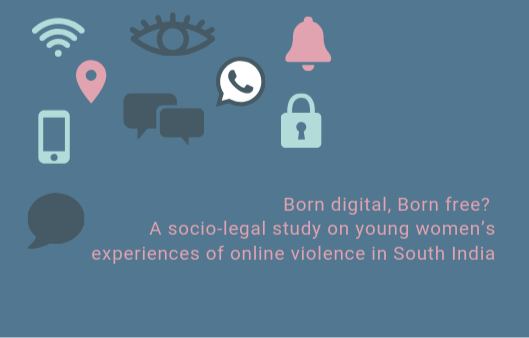Digital technologies have generated unprecedented ways of being and doing, dramatically changing the social and economic order. Recoding human subjectivity and social interactions, they recast power relationships. Gender relations are centrally implicated in this shift to a networked sociality where the online and offline must be understood as non-dichotomous. This research study examined how the born-digital generation of young female adults – who live their lives in the criss-crossing of the real-digital – grapple with the challenges of navigating digital space in the face of cyberviolence. Through a survivor-centred, feminist approach, it sought to unpack the fluidity between human subjectivity, social ideologies, legal norms, institutional rules and digital networks. An executive summary of the report can be found here.
This is the synthesis or final report of IT for Change's Righting Gender Wrongs project, an exploratory socio-legal research on gender-based cyberviolence across six sites of study in India, covering the states of Kerala, Karnataka and Tamil Nadu. Through a range of research methods -- self administered surveys with over 800 college students between the ages of 19-23, key informant interviews with law enforcement officials, women’s rights lawyers and activists, family court lawyers, counselors, digital rights activists; and focus group discussions with young men and women in colleges -- the study mapped experiences of cyberviolence among women of the 'born-digital generation' and the effectiveness of prevailing legal-institutional responses to the issue.
The project was supported by the Web Foundation.
The complete set of project outputs, produced as part of this study, can be found here.

